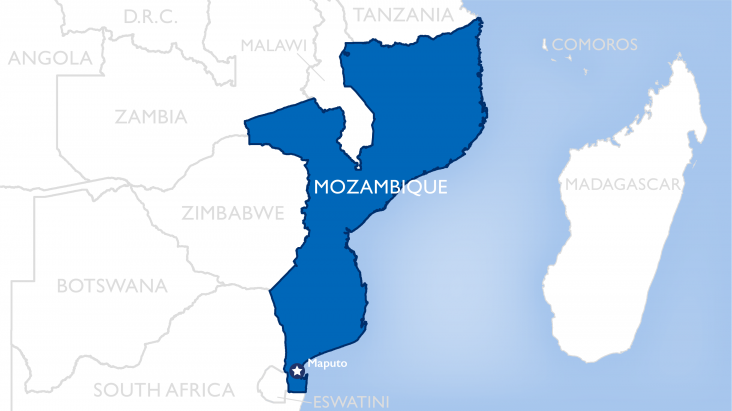- What We Do
- Agriculture and Food Security
- Democracy, Human Rights and Governance
- Economic Growth and Trade
- Education
- Environment and Global Climate Change
- Gender Equality and Women's Empowerment
- Global Health
- Humanitarian Assistance
- Transformation at USAID
- Water and Sanitation
- Working in Crises and Conflict
- U.S. Global Development Lab
Speeches Shim

To strengthen locally-driven resilience to violent extremism in northern Mozambique.
WHY USAID/OTI IS IN MOZAMBIQUE
Mozambique is undergoing multiple transitions. The global financial crisis disrupted twenty years of relative peace following a civil war, and ongoing corruption and governance challenges are compounded by the damage from 2019’s consecutive cyclones. Since 2017, the Islamic State-Mozambique (IS-M) has committed attacks on communities in northern Mozambique. The severity, pace, and sophistication of violence has steadily increased, sparking mass displacement and threatening long-term recovery and stability. COVID-19 has worsened the desperation experienced by the displaced and host communities — grievances that are exploited by IS-M. The Mozambican military’s attempts to halt the insurgency are often accompanied with allegations of human rights abuses, exacerbating distrust between government and citizens.
USAID/OTI’S ROLE IN MOZAMBIQUE
USAID/OTI partners with local government, community leaders, and civil society organizations in northern Mozambique to strengthen locally-driven resilience to violent extremism (VE). USAID/OTI coordinates closely with other U.S. Government actors as part of a larger response in northern Mozambique. The program currently works to:
-
Enable vulnerable youth to resist VE influence more effectively; and
-
Increase positive engagement about community grievances between communities and the government.
PROGRAM HIGHLIGHTS
- USAID/OTI provided furniture, equipment, and educational materials to the Bilibiza Teacher Training College after IS-M attacked the town by burning houses, looting businesses, and destroying public buildings. With many of its materials lost in the attack, it was unclear if the school would reopen. USAID/OTI support contributed to the college’s reopening and ensured 120 teacher trainees (including 59 women) could continue their education. The college is an important institution in Cabo Delgado because it is the largest training center in northern Mozambique. By supporting these future teachers, USAID/OTI helps to mitigate the educational disparities that help IS-M recruit.
-
USAID/OTI supported areas most affected by COVID-19 within the Cabo Delgado region. To improve community perceptions of the provincial government’s ability to provide adequate health services, USAID/OTI conducted a public COVID-19 prevention campaign in Pemba and Palma, two towns hosting an estimated 30,000 IDPs, and reporting the highest infection rates. The campaign included installing public handwashing stations, creating and broadcasting COVID-19 awareness videos, and training 24 Community Health Information Officers who carried out a door-to-door education campaign.

Comment
Make a general inquiry or suggest an improvement.